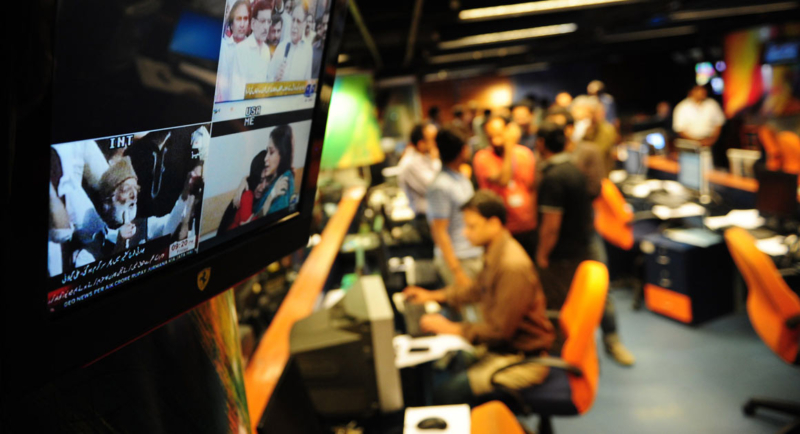The toll of Taliban attacks is measured in more than bodies.
Stay in the news business long enough, and you become hardened to brutality. But the reports from Pakistan overnight hit me hard on Tuesday morning. How to comprehend such evil? One hundred forty-five dead at the Taliban’s hands, more than a hundred of them children, executed while trying to learn. Coffins piled outside a Peshawar school. Hallways packed with small bodies, many still dressed in green school blazers. The news was horrifying, even for a country now all too used to horrific news. For me, it hit home because I am a mother, and also because it was unfolding in a place that I care about.
I’ve traveled to Peshawar, more than once, trying to understand people’s complicated relationships with the Taliban. But I’d think twice before going today. I suspect most reporters would. What follows is the story of one of them, a Pakistani journalist named Raza Rumi.
Rumi knows far better than I the dangers of covering Pakistan. Until a few months ago, he anchored a nightly news show for Pakistan’s second-biggest TV network. Maybe it’s a stretch to say that he was the Brian Williams of Pakistan, but he was something like that. Right up until the night, this past spring, when assassins came for him.
“There was this flash of light”, he says. “And that noise that submachine guns make, you know? I thought, Oh, my God they’re actually here for me.”
Both on his show and in his newspaper column, Rumi was known for speaking his mind. He admits that on March 28, he was in rare form. On the air that evening, he condemned the Taliban and other jihadist groups, then switched gears to criticize the government and its strict blasphemy laws.
“Afterwards, when I stepped off the set, my producer was shaking his head and saying, I think the time has come for you to seek asylum in Norway. But he was laughing. And I was laughing back.”
An hour later, on the road home, gunmen surrounded his car. “They shot my driver first, to slow down the car, Rumi tells me. He lost control, and we rammed into an electricity pole.” Rumi dove to the floor. “The bullets were coming and I kept telling myself, if they hit my leg, I have another leg. If they hit my arm, I have another arm. But if they hit my head. … So I was trying to jam my head under the front seat.” He lay still, covered in shattered glass and drenched in his driver’s blood, until he heard a crowd gathering and judged that his attackers must have fled.
Rumi survived. His driver did not. “Nobody was willing to help me pull him out of the car. Finally some guy brought a shawl, to cover him, while we waited for the ambulance to come.”
***
Raza Rumi tells me this story over lunch, on a chilly recent day in Washington, D.C. A mutual friend has introduced us, figuring we’ll hit it off because we’re both journalists and close in age (Rumi is 44), and because of my interest in Pakistan. We wedge ourselves into a back table at Rasika West End, an Indian place that’s perpetually packed with the power-lunch crowd from the nearby World Bank.
Rumi tells me he is staying, for the moment, in the northern Virginia suburbs. He asks me not to write exactly where. He says that for two weeks after the attack, he laid low in Pakistan and considered his options. “The police warned him not to return to his house in Lahore. They said, the killers will realize they missed their target, and they’ll come after you again. One option was to buy a bulletproof, bombproof car. And you know, get the house security-proofed, get cameras, get extra guards. But I don’t have that much money! And even if I hypothetically had half a million dollars to spare, why would I do that? They’ll still find a way to kill you. I saw that I was not going to get any justice or protection. So one night, I just packed up, and I grabbed my kids, and we came here.”
Read more: http://www.politico.com/magazine/story/2014/12/pakistan-reporters-113622.html#ixzz3MXkcgAtZ



